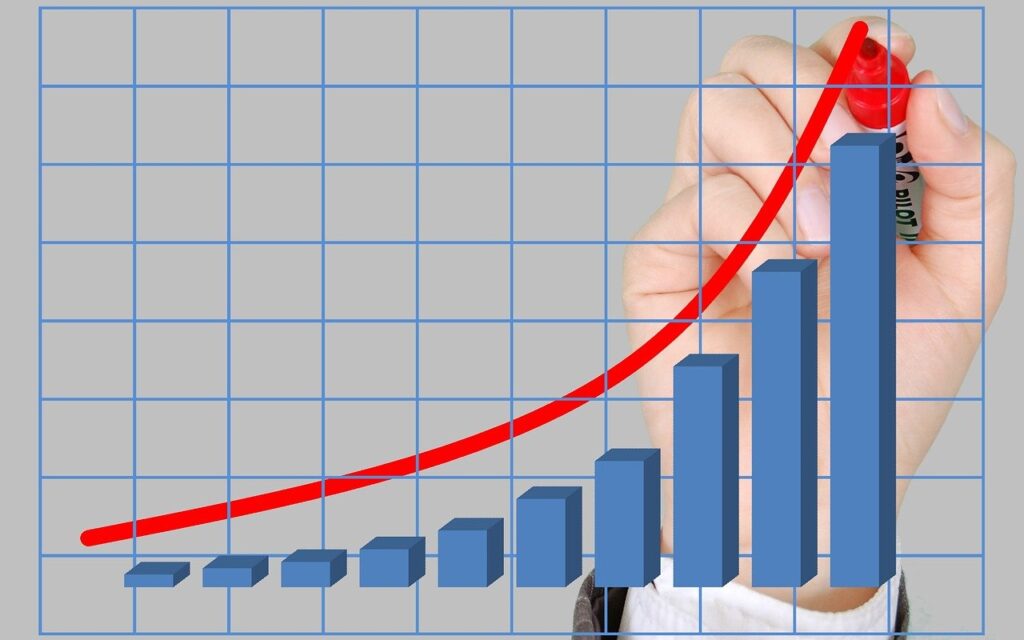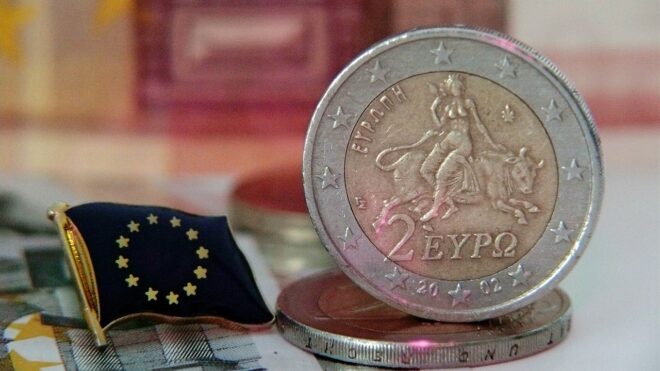Greece bounces back: The economic turnaround
The once-beleaguered Greek economy has experienced a remarkable turnaround in recent years. After years of hard economic times, the Greek economy is back and is no longer Europe’s problem child. Within this article, we will explore the historic change in the Greek economy and examine the various reasons for its inspiring resurgence. Feeling optimistic about the future, Greeks can finally believe that their economic struggles are over and that their prosperous future lies ahead.
Background on Greece's economic crisis
Central Athens nearly burned to the ground on the night of Feb. 12, 2012. Anti-austerity protesters and a small army of “anarchists” – violent young men clad in black and wielding
pry bars – engaged in street battles with equally savage Greek riot police
dressed like Roman gladiators. Some 45 buildings were set ablaze, including the
lovely, restored Attikon Cinema, built in 1870.
Eric Reguly, that covered the riot, states:
– My face smeared with Maalox in a futile effort to prevent the tear gas from ravaging my skin. The poisonous white plumes billowed through the air, triggering a panicky stampede out of Syntagma Square. Stun grenades were launched over the terrified crowds.
By evening, the area looked like a war zone, a hauntingly surreal one as smoke mingled with flames, making the downtown glow orange. The doors of my hotel were chained shut.
“Some of the people hate me,” he told me, adding that he had recently received a curiously
lumpy envelope from which a 9mm cartridge spilled out when he tore it open.
“But we must keep our nerve.” –
The crisis was so deep that Grexit – Greece’s exit from the euro zone – became a clear and
present danger at least twice. The first time came in 2012, when the country’s economy had collapsed; the second in 2015, when the anti-austerity Syriza party was elected; Yanis Varoufakis, the self-described “libertarian Marxist” economist was installed as finance minister; and Greece defaulted on an international loan payment. Greece’s economic crisis was one of the biggest stories in Europe during the past decade. The country’s economy was in shambles, with high levels of debt, low GDP growth, and rampant unemployment.
The current situation and progress
Fast forward to today, and Greece is now a country of growth, with its economy expanding at the fastest rate in over a decade. The country has implemented tough austerity measures, which have been painful for many Greeks, but which have also helped to turn the economy around. Some of the positive economic indicators include lower unemployment, rising GDP, and a growing number of foreign investors. Additionally, Greece is a member of the European economy, and its rebound is being seen as a good sign for the entire region.
There are still challenges, of course, including political instability, an aging population, and a heavy reliance on tourism. However, the future outlook for Greece’s economy is bright, and there are plenty of investment opportunities for those willing to take the risk. Overall, Greece’s turnaround is an inspiring story, and one that could have a positive impact on the entire European economy.
The road to recovery has been a difficult one, but it seems that Greece is finally turning a corner. It has become a country of growth once again, and this is a positive sign for the entire European economy. The country’s economy has been buoyed by a combination of factors, including increased tourism, rising exports, and foreign investment. There has also been a shift towards high-tech industries, such as renewable energy, which have the potential to provide long-term economic growth.
The Greek government has been working hard to create a more business-friendly environment, with reforms to labor laws and tax incentives for entrepreneurs. There are still challenges, however, including political instability and a high level of debt. But overall, the country’s progress is undeniable. Greece has become a country of growth, and it is a testament to the resilience of its people and the determination of its government. With the right policies in place and continued investment, there is every reason to believe that Greece’s economic recovery will continue for years to come.
The road to recovery Mr. Stournaras kept his nerve. In 2014, he became Governor of the Bank of Greece, a position he will hold for another three years. Today, no one is trying to kill him; it
is the economy, not the city centre, that is on fire. Under Mr. Stournaras’s leadership, Greece’s economy has been on a steady path to recovery, with the country emerging as one of the fastest-growing economies in the European Union. It is now considered a country of growth, rather than a problem child of the European economy. In 2021, Greece’s economy is expected to grow by 4.2%, well above the Eurozone average.
The country has also seen a drop in its unemployment rate and a surge in tourism, which has helped to boost its economy. Despite facing significant challenges, including the COVID-19 pandemic and geopolitical tensions with Turkey, Greece has remained resilient, and investors are starting to take notice. With a range of investment opportunities available, from tourism and real estate to renewable energy and infrastructure, Greece is well-positioned to attract foreign investment and continue its economic growth.
However, the country must remain vigilant and address issues such as bureaucracy and corruption, which could hinder its progress.

What the future holds: Growth & Investments
The future outlook for Greece’s economy is positive, and the country is once again a shining example of resilience and determination in the face of adversity. Despite the challenges, Greece’s economic growth is undeniable. The Greek economy has been growing at a steady pace for the past five years, with growth rates averaging around 2% annually.
The growth has been driven by strong exports, robust domestic consumption, and increasing investment, all of which have contributed to the country’s economic resurgence. Additionally, Greece has undertaken several structural reforms, such as modernizing its tax system and streamlining business regulations, which have helped to improve its competitiveness and attract foreign investment. The positive developments in the Greek economy have not gone unnoticed by the international community, with several credit rating agencies upgrading the country’s credit rating and investors increasingly expressing interest in Greece’s economic prospects.
The Greek economy’s current momentum bodes well for its future and indicates that the country is well on its way to becoming an economic powerhouse in the region.
Positive economic indicators by 2022, gross domestic product will be the GDP (gross domestic product) increased 5.9%, second only to Ireland twenty countries use the euro. While debt-to-GDP is still the highest in Europe, it has shrunk about 40 percentage points since the crisis years, at 170 percent, when Greece (barely) survived on bailouts administered by the Troika
ECB, European Commission, and International Monetary Fund Invest.
Currently, unemployment is high it peaked at more than 28 percent in the ugly summer of 2013
in the last twenty years, foreign direct investment has reached a record level of 10.9%
as tourism surges to record levels, employers are in high demand. A shortage of skilled workers is preventing their services from being met tens of thousands of the half-million mostly young Greeks who are a large number of people who fled during the crisis years in search of work abroad are returning home.
No wonder New Democracy, the centre-right, tax-cutting party led by Kyriakos Mitsotakis,
slaughtered radical-left Syriza in the May 21 election. The talk is of the outright collapse of Syriza, whose leader, Alexis Tsipras, was prime minister from 2015 to 2019 (Greece, now ruled by a caretaker government, will hold a runoff election on June 25, because New Democracy failed to garner 50 per cent of the vote, which would have given it an outright majority).
Greece, once the problem child of the European economy, has become a country of growth. This economic upswing has been largely driven by government efforts to slash red tape, cut taxes, attract investment, and reform the pension system. In addition, tourism, which accounts for one-fifth of the economy, has bounced back strongly. Despite the pandemic-related challenges, Greece welcomed more than 8 million visitors in 2021, up from 3 million in 2020.
However, there are still challenges and potential setbacks. Greece faces high public debt, and there are concerns about a possible fourth wave of COVID-19. In addition, Greece is in a neighborhood of instability, facing a range of geopolitical risks and challenges. These include ongoing tensions with Turkey over territorial disputes and energy exploration in the Eastern Mediterranean, as well as the ongoing migration crisis.
Nonetheless, the future outlook for Greece’s economy is positive. The European Commission expects Greece’s economy to grow by 6 per cent this year and by 5 per cent in 2023. The country has also successfully returned to the bond market, issuing its first 10-year bond in over a decade. For investors, Greece offers opportunities in a range of sectors, including energy, tourism, real estate, and technology. With a dynamic and entrepreneurial spirit, Greece is a country to watch in the years ahead.
European bureau chief Athens
Published June 2, 2023
The Globe and Mail. Read the original article here:

